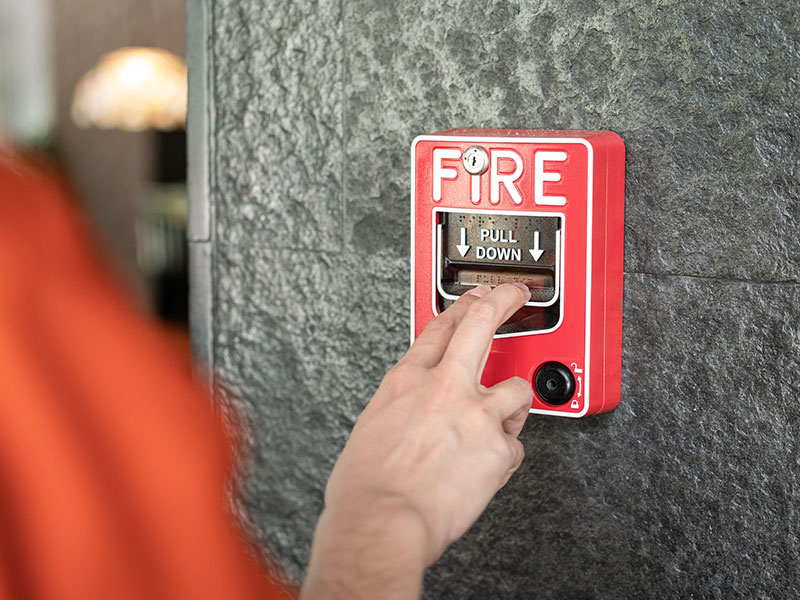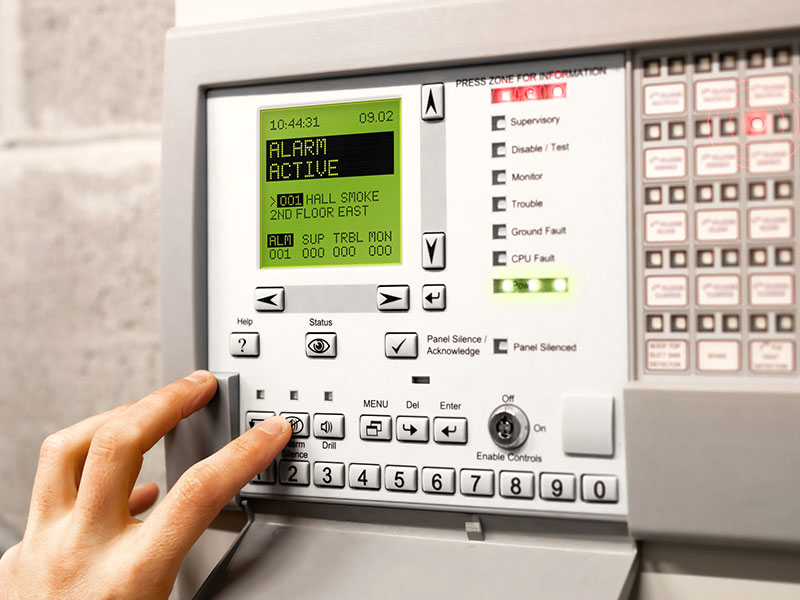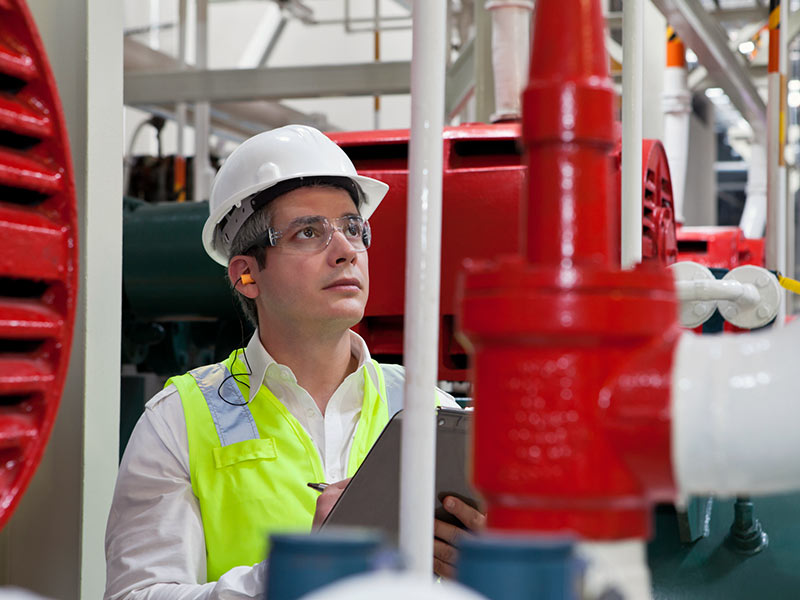Services
Fire Alarm Preventive Maintenance, Testing & Inspection
Our preventive maintenance programs are designed to keep your life safety and fire alarm systems code compliant and operating at optimal performance.

FAQs
Why is regular fire alarm testing and inspection important?
Regular testing ensures that the fire alarm system is fully operational and capable of alerting building occupants in case of an emergency. Building controls such as fire barriers, HVAC shutdown functions, and smoke evacuation fans should be activated on a regular basis to ensure correct and reliable functionality. Regular inspections ensure that your system is in compliance with local fire codes, insurance requirements, and safety standards.
How often should fire alarms be inspected and tested?
Fire alarm systems should be inspected and tested at least annually, in accordance with the National Fire Protection Association (NFPA) standards, local codes, laws and regulations. However, specific components may require more frequent testing, such as monthly visual checks and semi-annual inspections.
What does a fire alarm inspection involve?
A fire alarm inspection typically includes ensuring the functionality of smoke detectors, heat detectors, manual pull stations, strobe lights, horns, and control panels. It also involves testing the backup power supply and ensuring the system communicates properly with monitoring services.
Who is qualified to perform fire alarm inspections?
Fire alarm inspections should be conducted by licensed and certified technicians who are trained to work with fire alarm systems. These professionals are familiar with local codes and standards, such as those set by the NFPA and the Authority Having Jurisdiction (AHJ).
Why are fire sprinkler inspections necessary?
Fire sprinkler inspections ensure the system functions properly in the event of a fire, remains compliant with local and national fire codes, and helps to identify and address potential issues before they become critical. Regular inspections can also reduce liability and may be required by insurance providers.
How often should fire sprinkler systems be inspected?
Water Based fire sprinkler systems require inspections on a quarterly basis. Some components may be required to be inspected more frequently, depending on local regulations and the type of system. Always follow the inspection schedule outlined in NFPA 25 (the National Fire Protection Association standard) and local fire codes.
What is included in a fire sprinkler inspection?
A fire sprinkler inspection typically includes checking sprinkler heads, piping, valves, water pressure, alarms, and control panels for damage or obstructions. Inspectors also verify that water supplies, such as backflow prevention devices and fire pumps, are functioning correctly.
What happens if my fire sprinkler system fails an inspection?
If your fire sprinkler system fails an inspection, you will need to repair or replace the faulty components to bring the system into compliance. A follow-up inspection may be required to verify that the issues have been resolved. Failing to address deficiencies promptly could result in fines, legal consequences, or increased fire risk.
Why are fire alarm and sprinkler systems necessary in buildings?
Fire alarm and sprinkler systems are critical for detecting and suppressing fires early, helping to protect lives and minimize property damage. They provide an essential warning system and an active method of fire control, often required by building codes and regulations to ensure safety.
What are the benefits of having both a fire alarm and a sprinkler system?
Fire alarms provide early detection and warning to occupants, enabling a quick evacuation, while sprinkler systems actively suppress or control fires to prevent their spread. Together, they significantly reduce the risk of injuries, fatalities, and extensive property damage.
Are fire alarm and sprinkler systems required in residential and commercial buildings?
Yes, most residential and commercial buildings are required by local, state, or national fire codes to have fire alarms and sprinkler systems installed. The specific requirements depend on factors such as building size, occupancy type, and usage.
Solutions for Fire Alarm and Life Safety Systems.
The R.B. Allen Company is dedicated to keeping New England’s buildings fire-safe and code compliant. We supply high-end systems and components, and we set the standard for service, preventive maintenance, testing, and inspection.
Get in touch to start the conversation about how we can meet your needs.

